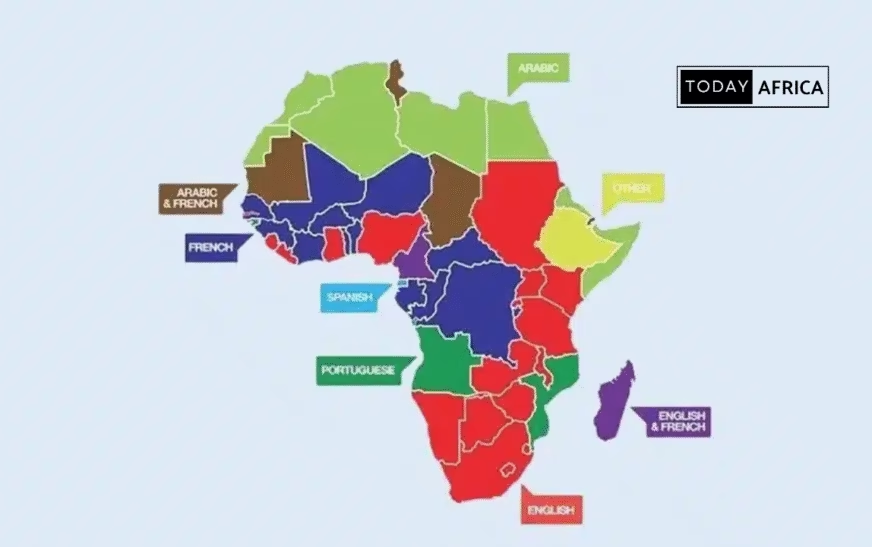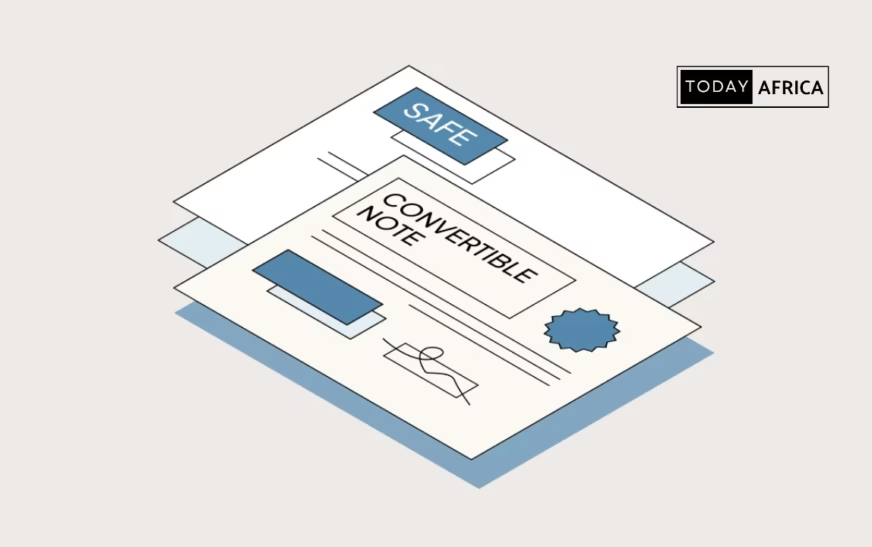At a co-working hub in Lagos, a Nigerian investment executive leans back and observes the room.
“We’re not just receiving the leftovers from global funds now,” she says. “We’re writing our own tickets.”
In much the same way, across other African cities, there is a subtle but growing shift. Local investors, pension funds, family offices, founders-turned-angels, and venture capital firms are emerging in the African startup ecosystem.
Why now? Because for years the narrative around African venture capital (VC) was: “over-hyped, under-capitalised, foreign-dominated”.
Yet, data suggest something is changing; domestic investor pools are growing; local LPs and local venture funds are beginning to shape the deals and the ecosystem.
In this article, we’ll discuss how local investors are transforming African venture capital, what drives them, where friction still lies, and what it might mean for the next decade of African innovation.
Foreign capital first, local capital now
When we talk about venture capital in Africa over the past decade, the dominant image has been one of global funds – US-, Europe- or China-based, flooding into “frontier” markets, chasing the next fintech unicorn.
That model brought excitement, but also problems. Many funds lacked a deep local presence; some misread consumer behaviours, regulatory variations, or regional differences.
Yet, the tide is shifting. According to data from the African Private Capital Association (AVCA), the number of unique local investors (i.e., African-based or African-led) playing in venture capital increased substantially in 2024: 188 local investors were recorded versus 426 international ones.
In March 2025 alone, nearly half of the startup capital in some markets came from African investors.
Foreign capital remains very important, but local investors are no longer footnotes. They are players. And that matters for ecosystem health, for sovereignty of capital, and for long-term sustainability of African VC.
Why local investors are stepping in
There are several threads pulling local investors into the venture space. I want to pull them apart:
1. Proximity and expertise
Investors rooted in their home markets have knowledge that outsiders simply can’t easily replicate.
The importance of local expertise in African VC investments has been emphasised by firms like Ingressive Capital: regulatory variation, consumer behaviour, infrastructure and logistics, all differ dramatically even between Kenya and Nigeria.
A local investor may not just ask “Is the fintech model scalable?” but “Can this founder navigate the Central Bank’s sandbox? Will the network infrastructure support mobile payments in rural regions? Are key local bank partnerships already in place?”
2. Trust and relationships
Founders often say that what they want from an investor isn’t only money, but someone who gets their world. A local investor offers that (or at least, has a better shot at it).
The study in the Journal of International Business Studies notes that local VC firms often prioritise local founders as part of their mission. And that builds momentum, not just investment but ecosystem trust.
3. Domestic capital looking for deployment
There is more money to invest domestically than there was. African pension funds, family offices, high-net-worth individuals are increasingly aware of venture opportunities in their home markets.
While the scale is still modest compared to global pools, the shift is meaningful.
For example, in Ghana, local funds held only about 2.4 % of total assets under management among private equity/venture structures in one estimate.
4. A reaction to global headwinds
Global venture capital is under pressure, macro-economic turbulence, interest-rate increases, and risk-aversion. When foreign capital tightens, local investors see windows.
One article has it that Q1 2025 was a “turning point”: local investors outpaced foreign ones in startup participation for the first time. It might be partly necessity, partly opportunity.
Read Also: Inside the Rise of Convertible Notes and SAFEs in African Venture Deals
Case studies and regional variations
Let’s look at how this is playing out in different markets, because Africa is not one market, and “local investor” means different things in different countries.
Nigeria
In Nigeria, we’ve seen local fund formation rise. In a 2018 TechCrunch article, 22 of 51 Africa-focused VC funds (43 %) were headquartered in Africa and managed by Africans.
Fast-forward, local investors and local LPs are backing funds.
For example, in 2022 one firm, Ventures Platform, closed an oversubscribed $46 million fund with significant local capital from the Nigeria Sovereign Investment Authority (NSIA), UAC Nigeria and others.
What’s interesting is not just the money, but the mindset, local investors are seeing home-grown startups as opportunities instead of sidelines. They often bring local networks and access.

Egypt & Kenya
According to AVCA data for 2024, Egypt had 33 local investors (12 new ones in that year alone), and Kenya had 25.
In Egypt, corporate venturing (for example, the National Bank of Egypt’s first close of a Fund of Funds) is signalling institutional local backup.
Kenya, as an older ecosystem, is increasingly seeing local LPs and funds not just as co-investors but leads.
South Africa and smaller markets
South Africa remains the largest domestic VC ecosystem on the continent.
But what’s worth noting is local investors are incrementally entering younger markets too; Mauritius, Senegal, Ivory Coast and beyond. This suggests the local-investor phenomenon isn’t just about the big four (Nigeria, Kenya, Egypt, South Africa).
In Lesotho, for instance, local venture capital partnerships (Basotho Enterprises Development Corporation with Enygma Ventures) show how even smaller markets are exploring local capital-led venture models.
Related Story: Why African Startups Struggle with Scaling and How to Fix It
The impact on deals, structure and strategy
Having local investors show up changes things. Here are some of the concrete differences I observed.
1. Deal sourcing and market fit
Local investors tend to lean in earlier into seed or pre-seed, because they are comfortable being closer to the ground. They spot “hidden” opportunities: niche agritech in West Africa, logistics plays in East Africa, informal-market models in North Africa. The Ingressive article says local investors identify opportunities that outsiders might overlook.
2. Better co-investment dynamics
International funds often syndicate with local investors. This isn’t just capital sharing, it’s risk-share, knowledge-transfer, validation. Local investors act as the boots-on-the-ground partner for global funds. The academic study notes local VC firms in Africa often partner with international ones to reduce perceived risk.
3. Turnover and exits
The presence of local investors helps create a more balanced ecosystem: if capital is domestically raised and domestically deployed, the odds of long-term returns and exits feel more plausible. Punch report highlights that local investors represented 31% of the total investor pool in 2024, up from 19% a decade ago. More local investors means more local alignment around long-term growth, not just rapid flips.
4. Sector and model diversification
Because local investors understand their ecosystems, they are more willing to back non-fintech models, clean/climate tech, healthtech, and agritech. In Nigeria’s report from March 2025, digital agriculture, last-mile logistics, and fintech are all strongly backed by local capital as global funds pull back.
Read Also: The Rise of Remote Founding Teams in Africa
Challenges, caveats and what still needs to change
This isn’t a rosy picture unscathed by friction. Far from it. As thoughtful observers we must note where the stress points are.
Capital depth and scale still limited
Even though local investors are rising, their scale often doesn’t match what global funds can bring. For example, in Ghana, local funds hold only about 1.4 % of assets under management in VC/PE. So while the trend is positive, the magnitude remains modest.
Risk, perception and exit mechanics
Risk remains high in many African markets: currency risk, regulatory unpredictability, and infrastructure gaps. International investors have historically shied away because home-market signal quality is perceived as weaker. For instance, non-African founders still benefited earlier in Africa’s VC history because investors felt more familiar with them. Local investors must still contend with these underlying macro- and micro-risks.
Ecosystem infrastructure lags
Having local money is one thing; having exit markets, secondary sales, mature fund-of-funds, pension-fund participation, is another. Many African markets still lack deep capital markets, robust exit channels and regulatory ecosystems to support a mature VC environment.
Concentration risk
Though local investors are growing, a disproportionate share sits in the “Big 4” markets (Nigeria, Kenya, Egypt, South Africa), 72% of domestic participants in 2024 came from those four. That means many African countries remain underserved. The risk is that local investor momentum remains regionally narrow, reinforcing existing divides.
Related Story: What It Really Costs to Build a Startup in Africa This Year
What this means for founders, LPs and ecosystem builders
For founders
Build relationships not just with global VC firms, but with local LPs, family offices, and domestic fund managers. They may move faster, understand your context better, and stay with you for the long haul. Having local backing can also improve your credibility with international co-investors. And be open to co-investment, many deals now involve a domestic investor and a global one working together.
For LPs (local and international)
If you’re a local LP (pension fund, family office, development finance institution), consider how you can anchor or co-lead venture funds domestically. The trend suggests your presence brings value, not just capital, but local insight, deal flow, and alignment.
If you’re an international LP, think about how you partner with local investors, not parachute in, but embed with them. Use their networks. Use their knowledge. Risk is reduced when we trust local operatives.
For ecosystem builders/policymakers
More regulatory clarity, enable pension-fund participation in VC, encourage co-investment vehicles, and support domestic fund managers. Diversification matters: not just a few hubs, but many markets. If local investors are going to transform the scene, they need the tools, talent, networks, exit mechanics, and a culture of patient capital

What might the next decade hold?
If local investor momentum holds, I think we might see three possible developments.
- Greater resilience in African VC ecosystems: When capital is local, it’s less sensitive to global risk-shocks. A fund backed by domestic LPs may ride out turbulence better than one entirely funded by foreign capital that might pull back in a downturn.
- Shift in power dynamics: Founders may have more leverage, not just chasing the “largest cheque” but aligning with investors who know the terrain. Local investors could become gatekeepers, co-creators, not just cheque-writers.
- Expansion into less-funded markets: As local capital becomes more comfortable, we might see more deals in markets beyond the Big 4 – West Africa’s smaller francophone hubs, parts of Southern Africa, North Africa, and an outside, in effect, of know-how and capital spreading.
But, this depends on execution. Capital alone won’t fix structural issues like weak governance, poor exits, currency turbulence, and low follow-on funding.
Local investors must act with discipline and build track records. Founders must be more than hopeful; they must deliver. And the ecosystem must support the full lifecycle – seed, scale, and exit.
Read Also: How African Founders are Adapting to the Startup Funding Slowdown
Conclusion
When I reflect on this shift in how local investors are transforming African venture capital, I feel cautious optimism. The picture is far from perfect, and yes, the gap remains large. But the needle has shifted.
For a long time, the story was “Africa needs foreign capital to solve its startup problems”. Now we’re seeing the reverse – “Africa’s startups need domestic capital, domestic investors to grow, scale and succeed”.
To be honest, I think that’s a healthier story. Because when capital is home-grown, the risks, the rewards, the relationships are more grounded in the local reality. The terrain is better known.
Mistakes may still happen, but they will be fewer of the “unknown unknowns”.
For founders, for local LPs, for the ecosystem, this is a moment. If they seize it, we might look back and say: this was the turning point when the African venture really went local, and started rewriting its own rules.
Leave a comment and follow us on social media for more tips:
- Facebook: Today Africa
- Instagram: Today Africa
- Twitter: Today Africa
- LinkedIn: Today Africa
- YouTube: Today Africa Studio
















